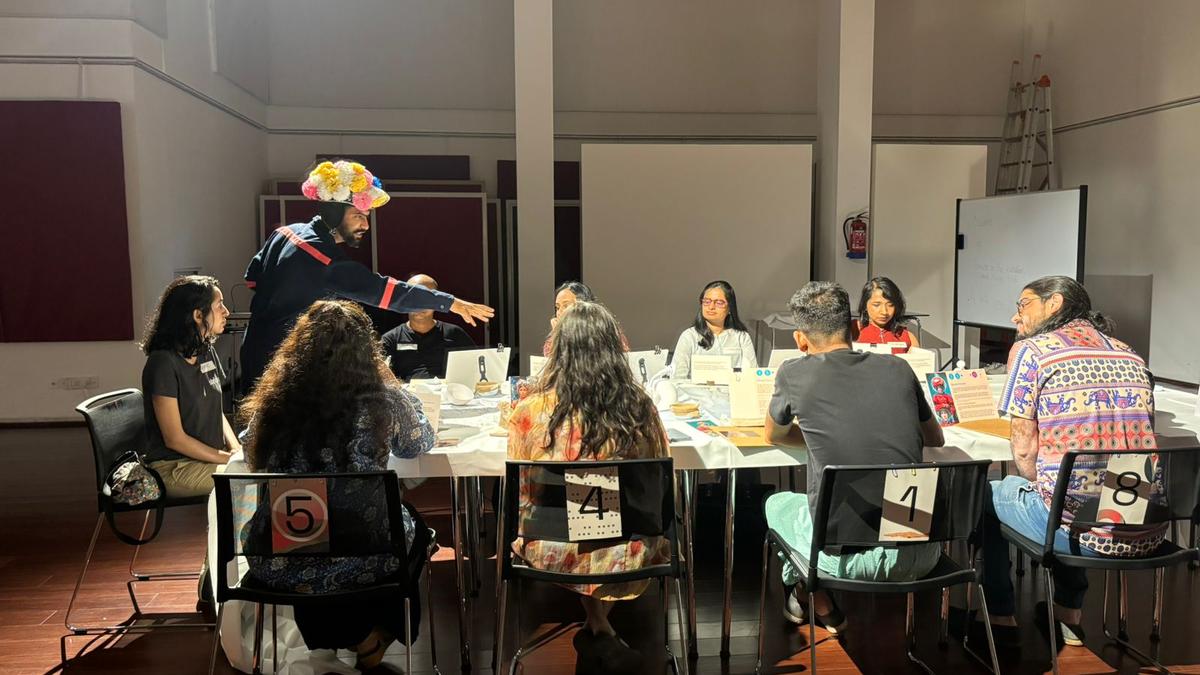
Exploring trust in a digital age
The Hindu
Theatre artiste Karen D’Mello’s immersive tabletop game transforms digital interactions into a trust-building analogue experience
Trust me, It’s a Forward! (TMF) Bengaluru-based theatre artiste Karen D’mello’s curious tabletop game is an interactive piece that focuses on trust in the age of propaganda and misinformation.
The performance immerses participants in a bustling, fantastical society deep beneath a turbulent ocean, where factions face crises and make pivotal decisions.
The game had nine participants from various age groups who were given pictures and audio describing the scenario — they were living on a moon orbiting a gas giant far from the heliosphere. The moon, prone to electric storms, concealed a verdant ocean and the participants were living in a subaquatic station anchored to ice, housing about 20,000 residents.
Having lost contact with Earth centuries ago, the inhabitants had forgotten their original purpose. Each participant receives a card with a number, assigning them a character such as a doctor, cetologist, or metalworker. The game consisted of six rounds, each with three phases: the game master posed a question, players answered positively or negatively, and then earned or lost tokens based on their answers.
Next, participants received pouches with red and blue tokens, crucial to the game’s outcome. Winning a round meant drawing a red token while losing involved randomly drawing a token without looking. Participants heard an audio clip and analysed cards at the beginning of each round to understand the situation.
The majority vote determined the round’s outcome, with those answering correctly earning a red token and advancing. In the final round, participants debated whether to send a signal to Earth or rebuild the camp. Ultimately, three of the nine participants survive and win the game.
According to Karen D’Mello, the objective of the game was to create a space where individuals, who may not have the opportunity to engage with one another formally, could interact. Despite being strangers working in the same digital isolation, they would be required to handle the same information in different ways.

 Run 3 Space | Play Space Running Game
Run 3 Space | Play Space Running Game Traffic Jam 3D | Online Racing Game
Traffic Jam 3D | Online Racing Game Duck Hunt | Play Old Classic Game
Duck Hunt | Play Old Classic Game











